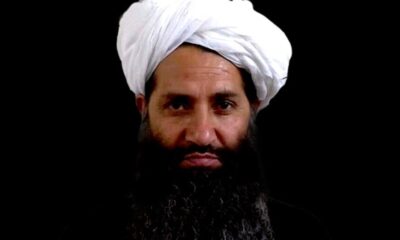Regional
UN says Gaza death toll still over 35,000 but not all bodies identified
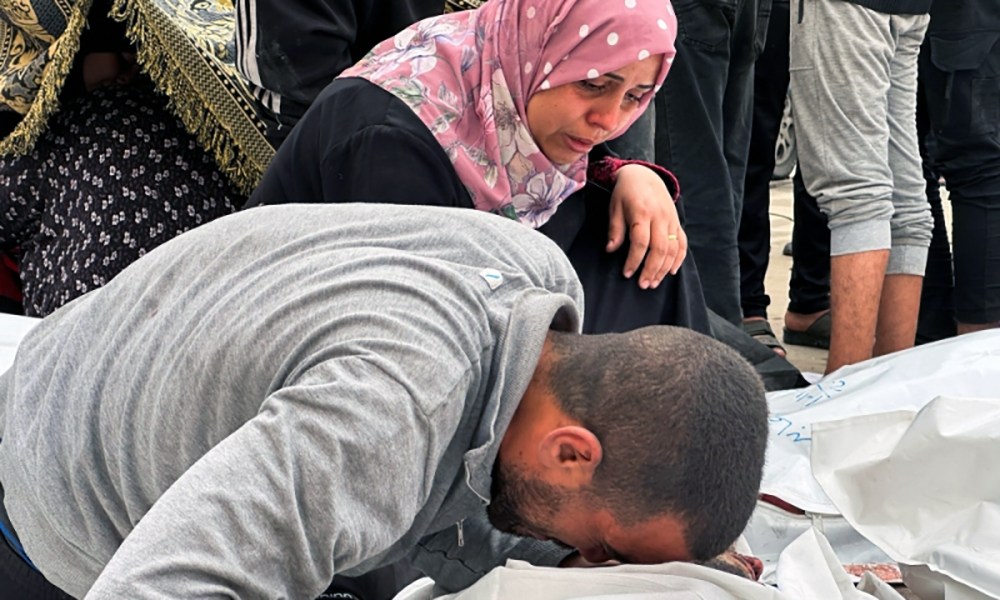
The death toll in the Gaza Strip from the Israel-Hamas war is still more than 35,000, but the enclave’s Ministry of Health has updated its breakdown of the fatalities, the United Nations said on Monday after Israel questioned a sudden change in numbers, Reuters reported.
U.N. spokesperson Farhan Haq said the ministry’s figures – cited regularly by the U.N. its reporting on the seven-month-long conflict – now reflected a breakdown of the 24,686 deaths of “people who have been fully identified.”
“There’s about another 10,000 plus bodies who still have to be fully identified, and so then the details of those – which of those are children, which of those are women – that will be re-established once the full identification process is complete,” Haq told reporters in New York.
Israel last week questioned why the figures for the deaths of women and children has suddenly halved, read the report.
Haq said those figures were for identified bodies – 7,797 children, 4,959 women, 1,924 elderly, and 10,006 men – adding: “The Ministry of Health says that the documentation process of fully identifying details of the casualties is ongoing.”
Oren Marmorstein, spokesperson for Israel’s Ministry of Foreign Affairs, on Monday accused Palestinian militants Hamas of manipulating the numbers, saying: “They are not accurate and they do not reflect the reality on the ground.”
“The parroting of Hamas’ propaganda messages without the use of any verification process has proven time and again to be methodologically flawed and unprofessional,” he said in a social media post.
Haq said U.N. teams in Gaza were not able to independently verify the Gaza Ministry of Health (MoH) figures given the ongoing war and sheer number of fatalities.
“Unfortunately we have the sad experience of coordinating with the Ministry of Health on casualty figures every few years for large mass casualty incidents in Gaza, and in past times their figures have proven to be generally accurate,” Haq said.
The World Health Organization “has a long-standing cooperation with the MoH in Gaza and we can attest that MoH has good capacity in data collection/analysis and its previous reporting has been considered credible,” said WHO spokesperson Margaret Harris.
“Real numbers could be even higher,” she said.
Regional
Iran ready for indirect talks with US, Khamenei aide says
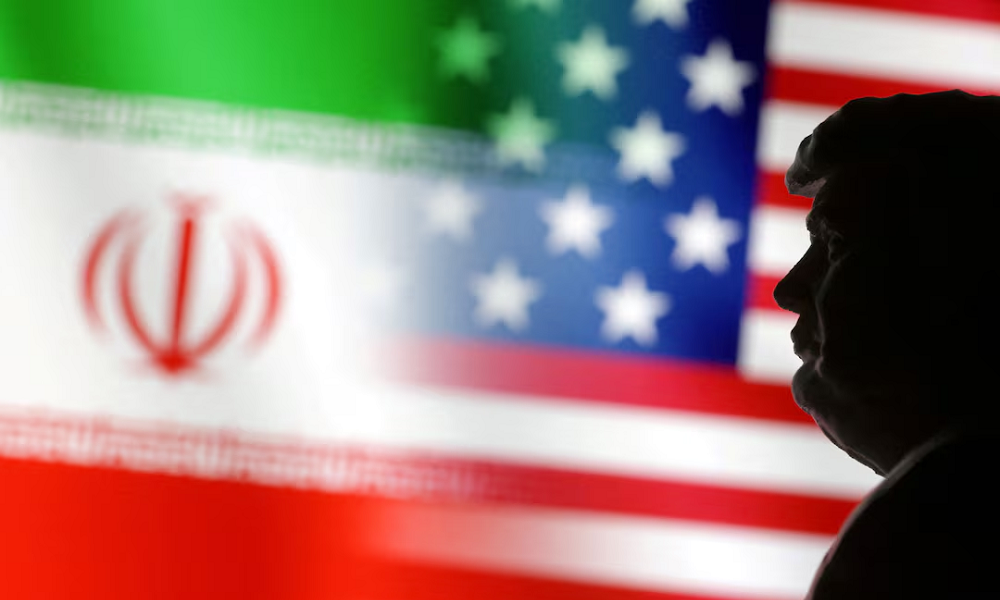
Kamal Kharrazi, an adviser to Iran’s supreme leader, said on Thursday Tehran has not closed all doors to resolve its disputes with the United States and is ready for indirect negotiations with Washington.
Tehran has so far rebuffed U.S. President Donald Trump’s warning it to make a deal or face military consequences. Supreme Leader Ayatollah Ali Khamenei called the message deceptive and Foreign Minister Abbas Araqchi said talks are impossible unless Washington changes its “maximum pressure” policy.
“The Islamic Republic has not closed all doors. It is ready for indirect negotiations with the United States in order to evaluate the other party, state its own conditions and make the appropriate decision,” Kharrazi said, according to the semi-official Iranian Students News Agency.
Iran is meant to soon reply to Trump’s letter, with Araqchi saying last week that Tehran would take into consideration both Trump’s threat and opportunities in its response.
In his first 2017-21 term, Trump withdrew the U.S. from a 2015 deal between Iran and world powers that placed strict limits on Tehran’s disputed nuclear activities in exchange for sanctions relief.
After Trump pulled out in 2018 and reimposed sweeping U.S. sanctions, the Islamic Republic breached and has since far surpassed those limits in its escalating programme of uranium enrichment.
Western powers accuse Iran of having an clandestine agenda to develop nuclear weapons capability by enriching uranium to a high level of fissile purity, above what they say is justifiable for a civilian atomic energy programme.
(Reuters)
Regional
Pakistan, China in talks about security for Chinese nationals
Chinese nationals have been targeted by separatist militants who believe Beijing is helping Pakistan exploit minerals in Balochistan
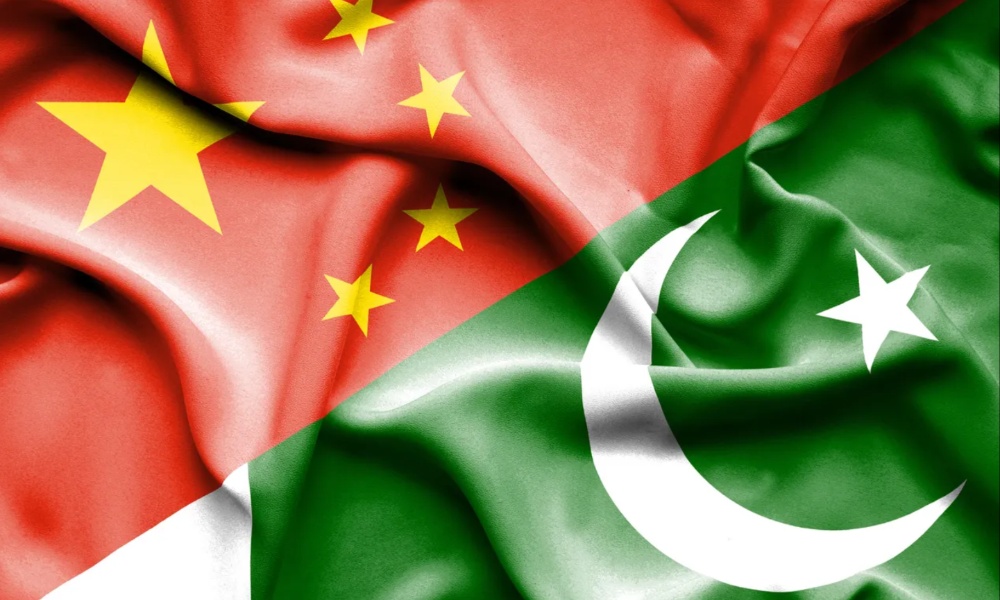
Pakistan and China’s discussions about security measures to protect Chinese nationals working in the South Asian country are a work in progress, Islamabad’s ambassador to Beijing said on Wednesday.
Chinese nationals have been in the crosshairs of separatist militants who believe Beijing is helping Pakistan exploit minerals in the underdeveloped southwestern province of Balochistan, where China has a strategic port and mining interests, Reuters reported.
It is Pakistan’s “national responsibility” and the country is “doing everything possible”, Ambassador Khalil Hashmi told reporters at the sidelines of the Boao Forum in China’s Hainan province.
“I think our two countries work very closely in terms of information sharing, in terms of developing the standard operating procedures” to ensure Chinese nationals working in Pakistan are safe, he said.
“We keep our Chinese friends informed of the steps that we are taking, so it’s a work in progress.”
Beijing has been pushing Pakistan to allow its own security staff to provide protection to thousands of Chinese citizens working there, frustrated by the string of attacks on its citizens.
The push came after a bombing at the Karachi airport last October killed two Chinese engineers who were returning there to work at a power plant.
Hashmi said those talks are ongoing, with a high degree of trust between both countries.
“It’s a complex security environment,” he said, “We have the capability to resolve, to counter and combat and defeat these terrorist forces.”
Regional
Egypt makes new proposal to restore Gaza truce as Israeli strikes kill 65
Palestinian officials on Sunday put the number of dead from nearly 18 months of conflict at over 50,000, read the report.
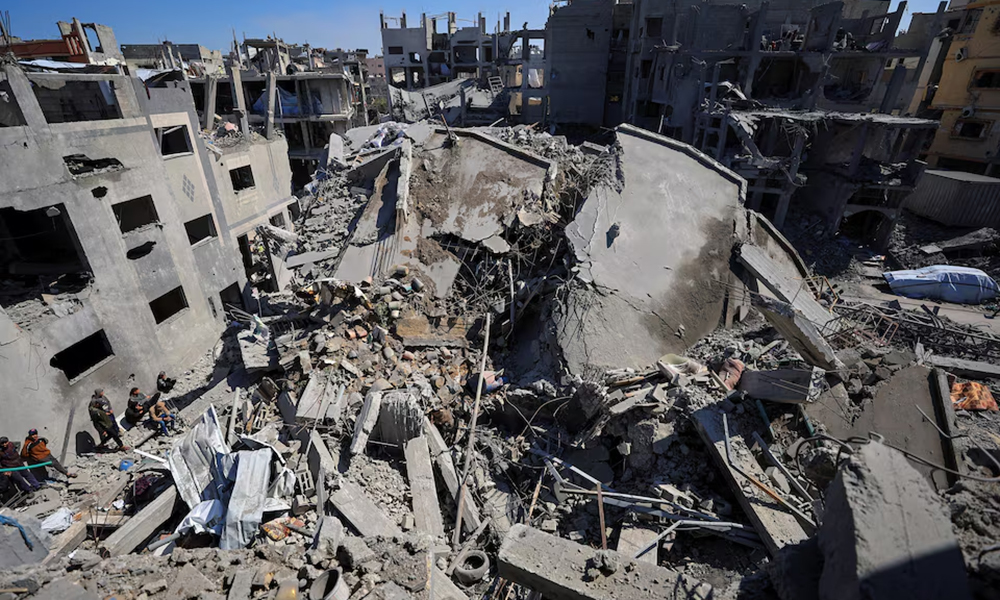
Egypt has floated a new proposal aimed at restoring the Gaza ceasefire deal, security sources told Reuters on Monday, as Palestinian health authorities said Israeli strikes had killed at least 65 people in the enclave in the previous 24 hours, Reuters reported.
The proposal, made last week, follows an escalation in violence after Israel resumed air and ground operations against Hamas militants on March 18, ending a two-month period of relative calm after 15 months of war.
Gaza health officials said Israeli airstrikes and shelling have killed nearly 700 Palestinians since then, including at least 400 women and children.
Among those killed on Monday were two local journalists, Mohammad Mansour and Hussam Shabat, medics said. The Palestinian Journalist Syndicate said at least 206 journalists have been killed by Israeli fire in Gaza since early October 2023, when the conflict erupted. There was no immediate Israeli comment.
Islamist group Hamas said several of its senior political and security officials had also been killed, read the report.
Later on Monday, the Israeli military said it had intercepted a missile launched from Yemen before it crossed into Israel. Warning sirens had sounded in Jerusalem, Tel Aviv and other areas. Iran-aligned Houthi forces in Yemen have at times fired missiles at Israel in support of Hamas fighters.
The Egyptian plan calls for Hamas to release five Israeli hostages each week, with Israel implementing the second phase of the ceasefire after the first week, two security sources said.
Hamas is still holding 59 hostages, with 24 thought to be still alive, among the more than 250 it seized in its October 7, 2023 cross-border attack on Israel. Most of the rest have been freed, or their bodies handed over, in negotiated exchanges.
Both the U.S. and Hamas have agreed to the proposal, the security sources said, but Israel has not yet responded, Reuters reported.
A Hamas official did not confirm the proposed offer, but told Reuters that “several proposals are being discussed with the mediators to bridge the gap and to resume negotiations to reach common ground that would pave the way to start the second phase of the agreement”.
The sources said the Egyptian proposal includes a timeline for a full Israeli military withdrawal from Gaza, backed by U.S. guarantees, in exchange for the release of remaining hostages.
Hamas has accused Israel of breaking the terms of the January ceasefire agreement but has said it is willing to negotiate a renewed truce and was studying proposals from U.S. President Donald Trump’s special envoy, Steve Witkoff.
Israel says it resumed its military operations to force Hamas to release the remaining hostages it is holding in Gaza.
On Monday, Hamas released a video it said showed hostages Elkana Bohbot, 35, and Yosef Haim-Ohana, 24, who were both abducted from the Nova music festival site on October 7.
Israel says it does its best to reduce harm to civilians and has questioned the death toll provided by health authorities in the Hamas-run enclave.
Palestinian officials on Sunday put the number of dead from nearly 18 months of conflict at over 50,000, read the report.
Israel launched its offensive in Gaza after Hamas fighters stormed southern Israel on October 7, 2023, killing 1,200 people, mostly civilians, according to Israeli tallies.
In Gaza’s southernmost city Rafah, the municipality said thousands of people were stuck inside the Tel Al-Sultan district where some Israeli military forces had entered, with families trapped among the ruins, with no water, food, or medicine.
The Palestinian Civil Emergency Service said 50,000 residents remained cornered in Rafah, which abuts the border with Egypt.
The Israeli military said troops had encircled Tel Al-Sultan to dismantle “terror infrastructure sites and eliminate terrorists in the area”.
A United Nations spokesperson said on Monday it would reduce its footprint in Gaza after five staff members of its Palestinian relief agency UNRWA were killed in the renewed conflict, but remains committed to providing aid to civilians.
Separately, UNRWA said 124,000 Palestinians have been displaced in Gaza in recent days.
“Families carry what little they have with no shelter, no safety, and nowhere left to go. The Israeli authorities have cut off all aid. Food is scarce and prices are soaring. This is a humanitarian catastrophe. The siege must end,” UNRWA said on X.
-

 International Sports4 days ago
International Sports4 days agoRCB bring fireworks to opening night of IPL 2025
-
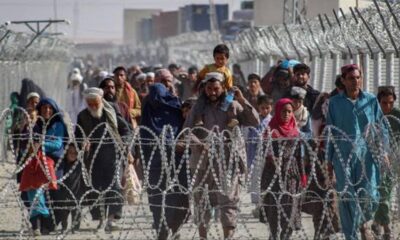
 Latest News4 days ago
Latest News4 days agoTorkham border reopens for pedestrians
-
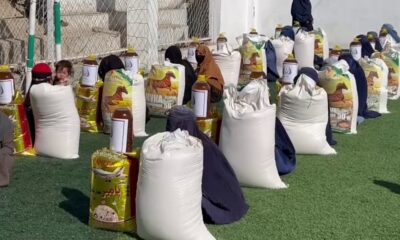
 Latest News4 days ago
Latest News4 days agoBayat Foundation distributes food aid to dozens of needy families in Balkh
-

 International Sports3 days ago
International Sports3 days agoIPL 2025: Sunrisers on a batting rampage; triumph over Rajasthan Royals
-

 Latest News3 days ago
Latest News3 days agoEU says girls’ education crucial for Afghanistan’s long-term prosperity
-
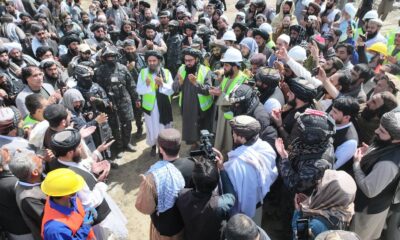
 Business4 days ago
Business4 days agoDeputy PM inaugurates launch of Arghandi Transport Terminal Project in Kabul Province
-
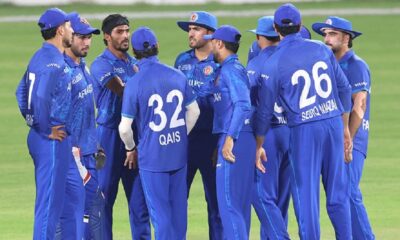
 Sport3 days ago
Sport3 days agoACB names Afghanistan A squad for tri-nation series
-
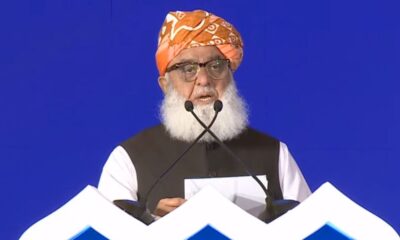
 Latest News4 days ago
Latest News4 days agoPakistan’s mistakes played significant role in rise of terrorism: Maulana Fazl-ur-Rehman










